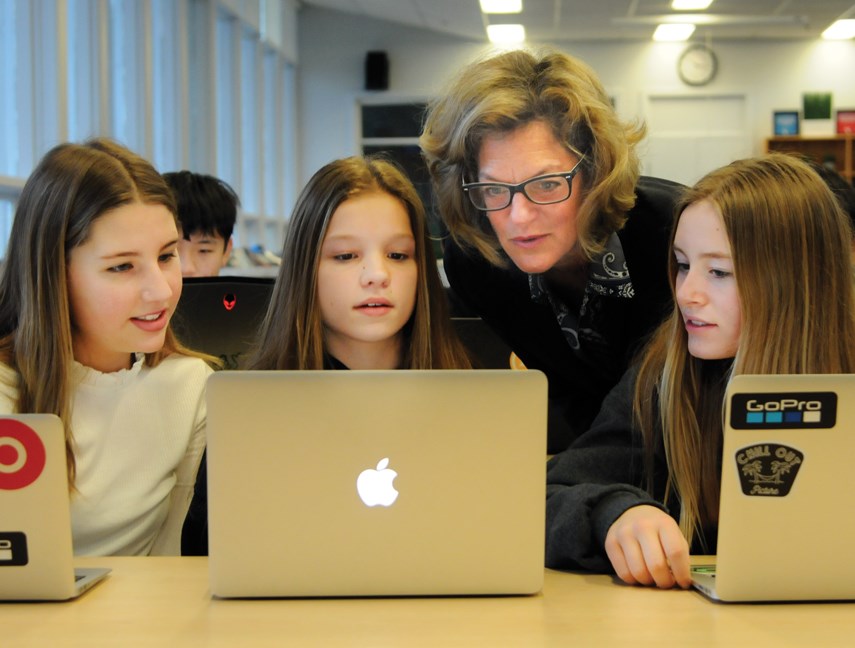More North Shore students will be cracking the code this year, after the federal government said it will be investing $1-million nationwide for technology lessons in the classroom.
The announcement was made Wednesday by West Vancouver-Sunshine Coast-Sea to Sky Country MP Pamela Goldsmith-Jones at Ridgeview Elementary in West Vancouver.
“It’s the language of the future,” said Goldsmith-Jones, after the coding announcement. “The vision of the government is to bring this to every child in the country.”
The federal CanCode program, a 2017 budget promise, will see $50 million over two years spent to support coding and digital skills development for more than a milliion students from kindergarten to Grade 12.
In West Vancouver, kindergarten students already receive an introduction to coding, which, said Goldsmith-Jones, is at the core of the school district’s curriculum.
“The West Van school district is an early adopter in all of this and has already a strong relationship with The Learning Partnership, so you can really see the difference it’s making already,” said Goldsmith-Jones.
This week's $1-million coding funding will be funnelled to The Learning Partnership, a national charitable organization dedicated to enhancing publicly funded education to prepare Canadian students for a globally connected world by building partnerships between government, education and business.
“West Vancouver Schools is thrilled to be receiving CanCode funding,” stated West Vancouver board of education chair, Carolyn Broady, in a release. “Global skills like coding will help our youth with not only their critical thinking in school today but ensure long-term success for them in the future. This money will also equip many of our teachers with the tools and resources to facilitate these exciting digital programs for our students.”
Students in the North Vancouver school district will also be beneficiaries of the coding in classrooms funding, said Goldsmith-Jones.
Coding Quest, one of the programs being taught to students, is based on the provincial curriculum and uses a critical inquiry process to enable students in Grades 4, 5 and 6 to learn fundamental coding skills and create a video game. The program focuses on Science, Technology, Engineering and Math (STEM) subjects, while incorporating learning skills, language arts, visual arts and social studies.
Coding Quest culminates in a regional Arcade hosted by The Learning Partnership.
Learning to code at a young age helps students develop analytical thinking and fosters problem-solving techniques, states the CanCode website. The program aims to equip youth, including traditionally underrepresented groups, with the skills and study incentives they need to succeed in a high-tech world.



